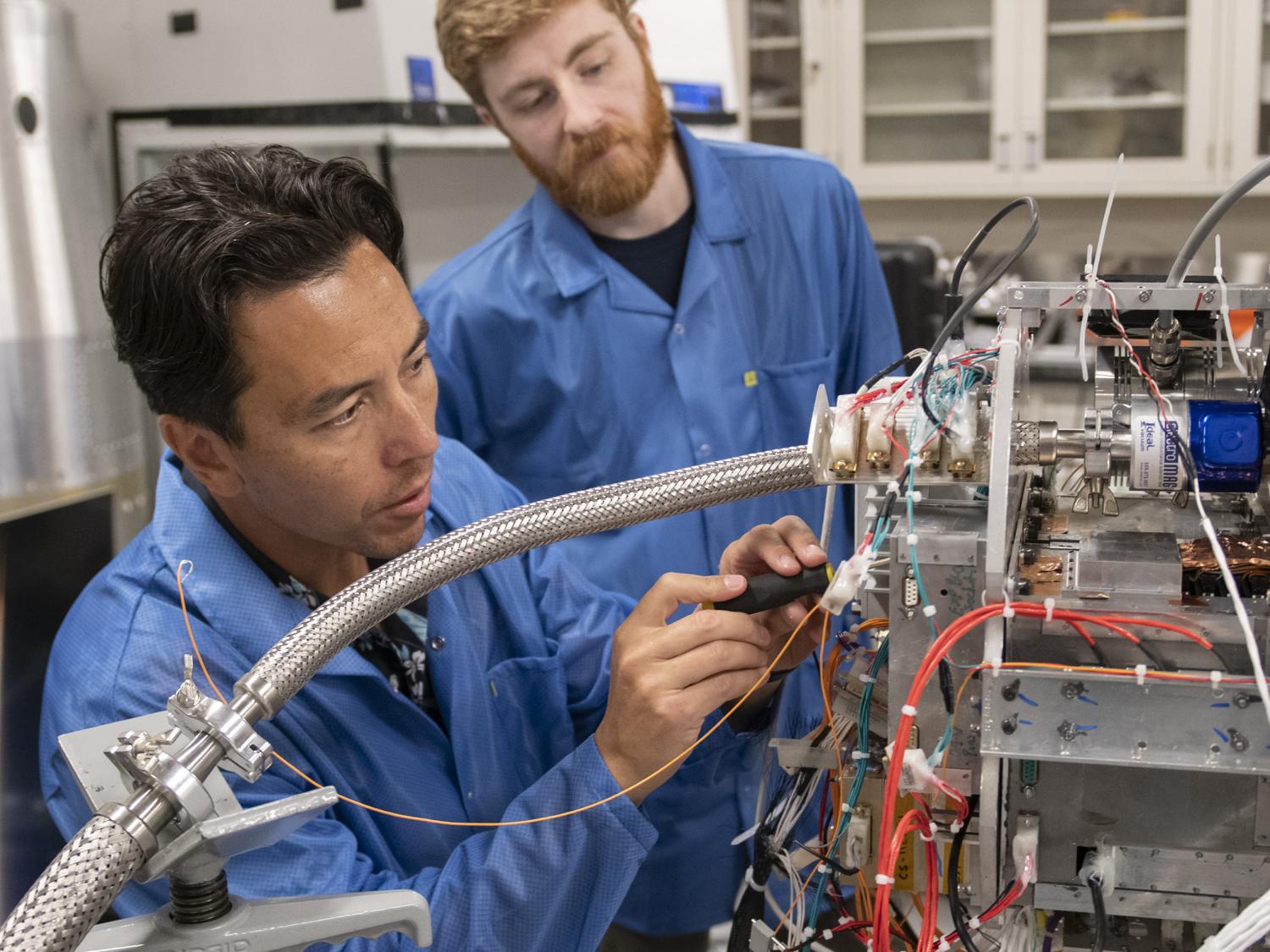
Penn State has experienced unprecedented growth in its research enterprise over the last five years, including exceeding $1 billion in research expenditures. To capitalize on this momentum and empower continued growth, the University aims to transform research support operations so that faculty, staff and students can devote their full attention to the pursuit of groundbreaking discoveries and innovations that address pressing societal issues.
In June, workgroups were formed to advance President Neeli Bendapudi’s vision for the future of the University. To address the goal of growing Penn State’s interdisciplinary research excellence, a workgroup comprising 25 members from various units across the University began the work of assessing the current state of research at Penn State.
As chair of the workgroup, Andrew Read, interim vice president for research, noted that the group’s initial conversations revealed that to grow Penn State’s interdisciplinary research excellence, the University must first optimize its research support infrastructure and systems, so Read — with the support of executive sponsors Justin Schwartz, executive vice president and provost; Michael Wade Smith, senior vice president and chief of staff; and Sara Thorndike, senior vice president for finance and business/treasurer — is immediately launching a transformation project with the following goals:
- Improve the usability and transparency of Penn State research support processes for researchers, sponsors, research administrators and research project managers
- Empower future growth of the Penn State research enterprise
“Penn State has earned a reputation as a leading research institution thanks to the sincere dedication of its researchers and scholars working across disciplinary boundaries,” said Read. “Yet, due to expanding federal regulations and a nationwide shortage of research administrative staff, among other hurdles, our faculty and staff are burdened with administrative and compliance tasks that limit research productivity. By implementing advanced research support infrastructure and systems, we can create an agile, dynamic and sustainable foundation for Penn State to continue to strengthen its position as a leader in cutting-edge research and to attract and retain top-notch faculty, researchers and students, and also better engage our external audiences.”
Read said that inclusion of stakeholders and subject-matter experts will be critical to transforming research support operations. A core team has been named and will lead three workstreams over the course of the next year focused on improving the efficiency with which research awards are processed; developing an enhanced research portal, which provides Penn State’s principal investigators with access to administrative data associated with their grants; and developing recommendations to modernize the overall research support system at the University. The core project team will convene a wide array of researchers and research staff members from across the University to provide meaningful input and serve in an advisory capacity on these workstreams.
“As a faculty member at Penn State and director of the Huck Institutes of the Life Sciences, I was well aware of the barriers that our researchers face,” said Read. “Now, in my role as interim senior vice president of research and as the chair of the workgroup on growing the University’s research enterprise, I can say with confidence that Penn State is committed to providing the necessary support to empower its outstanding faculty, staff and students to take the institution to the next level of research excellence. This is truly a reason to be a fierce advocate for our research enterprise, for the “long game” impact to our world, and for the infrastructure provided to our scientific community.”
Core team members include:
- Lee Kump, the John Leone Dean, College of Earth and Mineral Sciences (co-chair)
- Jeremy Bean, director of change and organizational excellence (co-chair)
- Michael Stedelin, executive director, Office of Research Information Systems
- Rashonda Harris, assistant vice president for Research, post award contractual compliance
- Virginia Teachey, associate vice president for Budget and Finance
- Eric Donnell, associate dean for research, College of Engineering
- Deb Ehrenthal, director, Social Science Research Institute
- Niki Page, director of grants and contracts, College of Health and Human Development
Progress will be periodically shared with the University community.